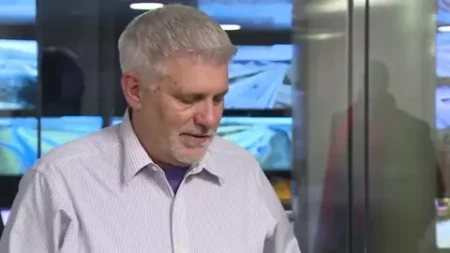North Korea has sent an additional 3,000 troops to Russia this year while continuing to supply missiles, artillery, and ammunition to aid Moscow in its war against Ukraine, according to South Korea’s Joint Chiefs of Staff (JCS) on Thursday.
The growing alliance between Pyongyang and Moscow has raised global concerns, with Seoul estimating that North Korea has already deployed around 11,000 troops to Russia since the beginning of the conflict. The latest reinforcements arrived between January and February 2025.
Escalating Military Support
South Korea’s JCS reported that North Korea’s involvement in Russia’s military efforts has intensified. Of the initial 11,000 troops sent, approximately 4,000 have either been killed or wounded, emphasizing the high-risk nature of their deployment.
Beyond manpower, North Korea has been a significant supplier of weapons and military equipment to Russia. The JCS report highlights that Pyongyang has provided:
- A substantial quantity of short-range ballistic missiles (SRBMs)
- Approximately 220 units of 170mm self-propelled guns
- Around 240 units of 240mm multiple rocket launchers
Experts warn that this assistance could increase depending on battlefield conditions, further deepening North Korea’s role in the conflict.
Strengthening Russia-North Korea Ties
Neither Russia nor North Korea has publicly confirmed the troop deployments. However, the two nations signed a comprehensive military pact in 2024 that includes a mutual defense clause. This agreement was established during Russian President Vladimir Putin’s rare visit to Pyongyang last year, solidifying their military cooperation.
North Korea’s support for Russia not only strengthens its alliance with Moscow but also allows it to test and refine its own weaponry. Pyongyang launched several ballistic missiles in 2024, violating United Nations sanctions and sparking international condemnation.
Advancements in Drone Warfare
In addition to traditional military aid, North Korea is focusing on drone warfare technology. State-run Korean Central News Agency (KCNA) reported on Thursday that North Korean leader Kim Jong Un personally oversaw the testing of new reconnaissance and suicide drones equipped with artificial intelligence.
These new drones offer advanced tracking capabilities and are designed for both surveillance and direct attack missions. KCNA stated that North Korea plans to expand its production of these AI-driven drones, signaling a significant shift in its military strategy.
Strategic Implications
Military analysts believe that North Korea’s involvement in Russia’s war effort is driven by multiple factors:
- Combat Experience: Troops deployed to Russia gain firsthand experience in modern warfare, particularly in drone technology and battlefield tactics.
- Access to Advanced Technology: By assisting Russia, North Korea may gain insights into more sophisticated military technologies.
- Economic and Political Leverage: Strengthening ties with Russia provides Pyongyang with a crucial economic and diplomatic ally amid ongoing international sanctions.
Yang Moo-jin, president of the University of North Korean Studies, told AFP that North Korea’s focus on drone weaponry aligns with its five-year defense development plan. He also noted that Pyongyang’s recent claims about South Korean drone incursions—denied by Seoul—may be part of a broader strategy to justify its accelerated drone program.
Global Reactions and Concerns
The latest revelations from South Korea’s JCS have raised alarms among Western nations. The United States and its allies have consistently condemned North Korea’s military support for Russia, warning of potential repercussions.
As North Korea continues to advance its military capabilities and forge stronger ties with Russia, global security experts caution that the situation could escalate further, leading to greater instability in the region.







